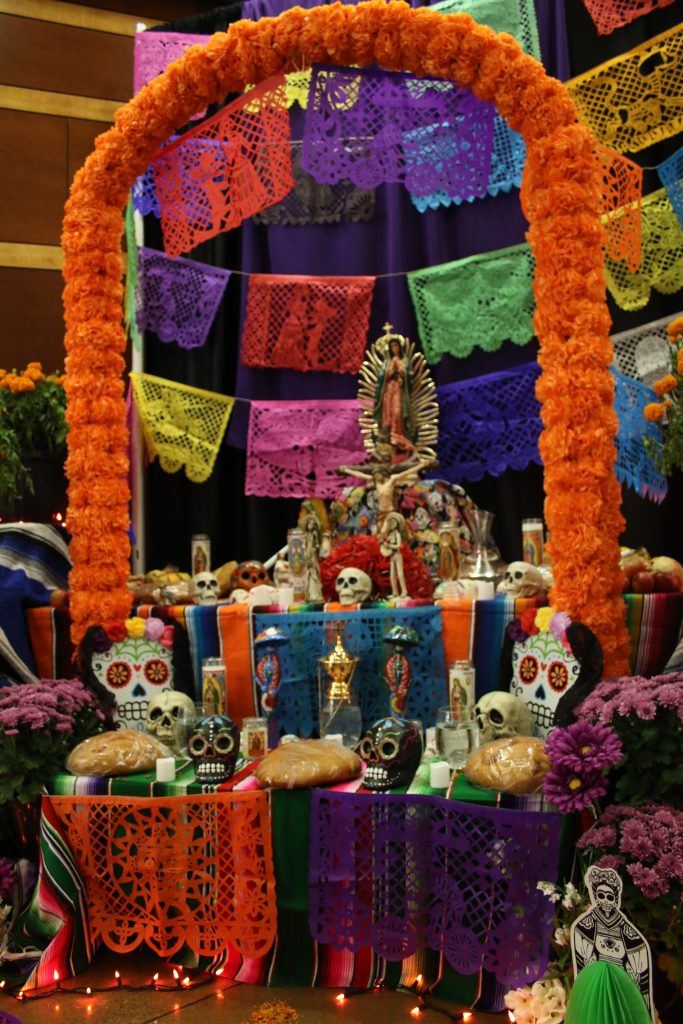
The beginning of Halloween not only brings out the costume themed parties and the cute kids dressed in adorable costumes, it also brings out the Day of the Dead festivities.
It is believed that the veil between the land of the living and the afterlife is the weakest, beginning the night of Halloween. The deceased are then able to visit with their families for 24 hours.
Let me start off by saying that El Día de los Muertos is not the Mexican version of Halloween. This two day holiday celebrates the lives of the deceased with fiestas and offerings to those who have made the long journey from the afterlife to Earth.
“Many Latin American families’ altars are done so privately and intimately, but you sit around and eat food and share stories about the people on the altar. It’s a way for people to keep their memories alive,” said Ricky Salazar, program coordinator at The Center on the university’s campus.
These practices originated thousands of years ago from the Aztecs, who considered mourning the dead to be disrespectful. Instead, they celebrate life and the lives of those who have passed.
“We do it in such a festive way that it becomes happy, even when it’s sad. It’s an attempt to honor their memories and share their stories,” said Salazar. They commemorate the dead with altars, or ofrendas in Spanish. They decorate the altars to welcome back the dead to the land of the living. Each are personalized by their own family, but most will contain some sort of food or drink to give to the travelers as a reward for the long journey.
The Center for Cultural Diversity hosted their own event on Wednesday October 25th for groups of students to make their own altar. The groups were provided tools and supplies needed such as paper, candles, sugar skulls, flowers, plastic tablecloths, and banners.
The altars will be up from October 25th to November 1st. On the 1st of November, they held a reception where they crowned the best altar.
First place winner was Lambda Theta Pi, a latino fraternity on campus.

“For me, it’s the notion of connecting student to their roots. Most students know but don’t understand El Día de los Muertos. My job is to help them explore and learn their identity through events like this,” Salazar concluded.
